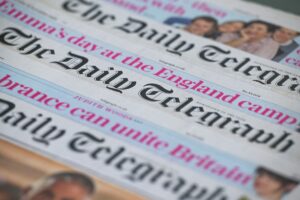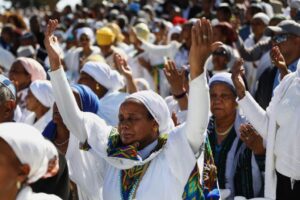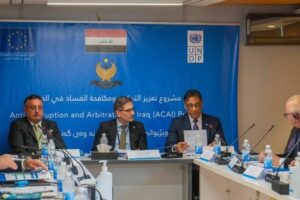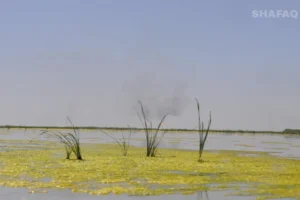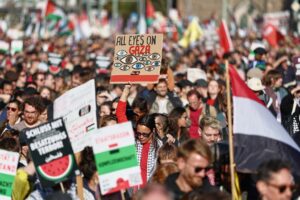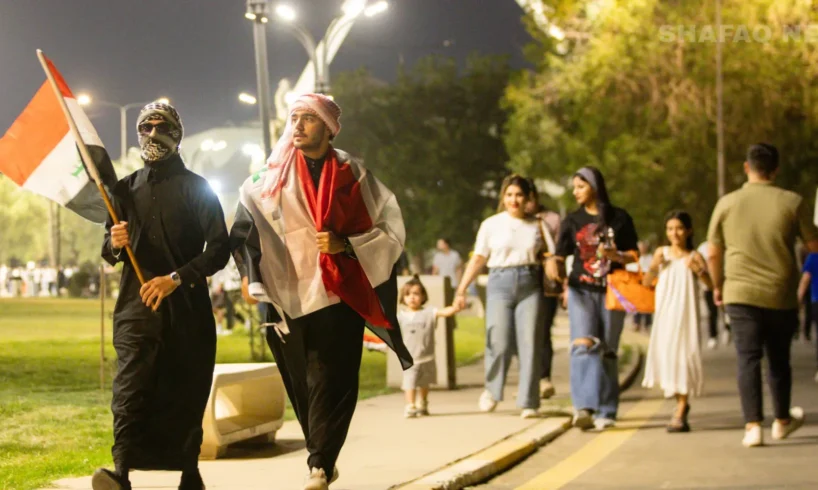
2025-10-07T22:10:09+00:00
font
Enable Reading Mode
A-
A
A+
Shafaq News
The run-up to Iraq’s November 2025
parliamentary elections reveals a striking shift in political participation, as
figures from entertainment and social media enter the race and provoke debate
over the role of popularity in governance.
Beyond seasoned politicians, the
ballots now feature actors, poets, fashion influencers, and social media
figures. This widening of political participation has stirred conversations
about democratic openness, institutional standards, and the evolving role of
Parliament.
A New Political Phenomenon Gains
Ground
The candidacy of public
personalities from entertainment and digital platforms is not entirely new, but
the 2025 race marks a sharp rise in both visibility and scale. Among the
standout figures is Youssef Salah al-Din, widely recognized through his comedic
alter ego “Habanti,” who is running in Basra.
In remarks to Shafaq News, Salah
al-Din described his bid as rooted in national and social purpose, highlighting
his dual role as a performer and a civil servant. “People see me as ‘Habanti,’
the comic figure,” he noted, “but I also serve as Head of School Activities in
Basra’s Directorate of Education. I carry positive energy that can be
redirected to serve the public more formally.”
He maintained that artists in Iraq
face neglect and lack representation, despite their cultural and social
contributions. By entering the political arena, he argued, artists could
address that gap and advocate for their marginalized community.
Legal Framework
Iraqi law imposes no professional
restrictions on candidacy. Hassan Hadi Zayer, from the media team of the
Independent High Electoral Commission, confirmed to Shafaq News that any
citizen born to Iraqi parents and meeting the legal requirements qualifies to
run.
Read more: Money, power, and ballots: Iraq’s struggle against electoral fraud
While this legal framework supports
broad democratic participation, it also reveals a growing divide between
technical eligibility and the ability to legislate effectively.
Concerns Over Populism and
Competence
Some observers embrace the presence
of artists and influencers as a step toward greater inclusion. Others caution
that the trend risks prioritizing popularity over competence.
Read more: Iraqi women in politics: struggles for representation and equality
Political analyst Muhannad al-Rawi
recognized that some artist candidates bring academic merit and public trust.
Still, he expressed concern over the rise of fashion influencers and bloggers
with no political or cultural grounding. “When individuals without foundational
knowledge or experience enter Parliament, we risk turning it into a stage, not
a legislative chamber.”
He pointed out that certain
political blocs deploy these figures to capture youth support. “They’re
appealing to followers, not voters—likes instead of legislative insight.”
In his view, effective lawmaking
demands a minimum of political literacy and understanding of governance. “What
kind of laws will a fashion influencer propose? This reflects a dangerous
dilution of institutional seriousness.”
Political commentator Abdullah
al-Kanani offered a more reserved perspective. While he acknowledged no
inherent legal issue with artist candidacies, he questioned whether
entertainers can meaningfully represent public interests. He observed that
parties often use such candidates to expand their voter base, but rarely to
deepen political engagement.
He referenced Ukrainian President
Volodymyr Zelenskyy, who transitioned from comedy to leadership, backed by a
national agenda and clear political direction. Iraq, by contrast, lacks both
the political grounding among candidates and the civic awareness among voters
to support such a shift. “This creates a vacuum where popularity replaces
policy.”
Redefining Legitimacy or Diluting
It?
At its core, the issue raises deeper
questions about the kind of representation Iraqis seek. Should Parliament
reflect every segment of society, or should it remain a forum for qualified,
accountable leadership?
If entertainers and influencers
continue entering the race without a clear political direction, Iraq may face a
symbolic broadening of its political arena—without the institutional strength
to match.
Written and edited by Shafaq News
staff.
Read more: Iraq’s 2025 Parliamentary Elections — What You Need to Know

